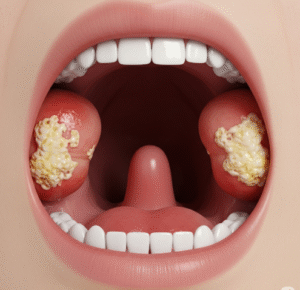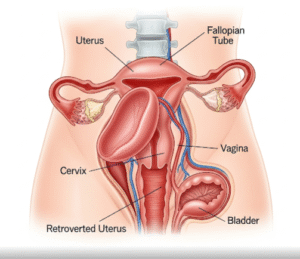Overview
Complicated Grief Disorder, also known as Prolonged Grief Disorder, is a mental health condition in which the natural grieving process becomes prolonged, intense, and debilitating. While grief is a normal emotional response to loss, individuals with Complicated Grief Disorder experience persistent and overwhelming sorrow that prevents them from moving forward with their lives. This condition can severely affect relationships, work, physical health, and overall well-being. In Korea, where family ties, cultural traditions, and social expectations around mourning are deeply ingrained, Complicated Grief Disorder can be particularly challenging. Korean healthcare systems provide specialized support, including psychotherapy, counseling, and integrative treatments, to help patients recover. With a growing focus on mental health awareness, Korea offers comprehensive care for those struggling with this condition.
What is Complicated Grief Disorder?
Complicated Grief Disorder (CGD) is a psychological condition in which grief does not resolve naturally within the expected time frame. Unlike typical grief, which gradually becomes more manageable, CGD persists for months or even years, interfering with daily functioning. Patients often feel trapped in their grief, experiencing a constant longing for the deceased and an inability to accept the loss.
The condition is recognized in psychiatric classifications such as the DSM-5-TR (as Prolonged Grief Disorder) and the ICD-11. It is considered distinct from depression, although the two may overlap. The disorder highlights the need for targeted therapy rather than assuming time alone will heal the pain.
Symptoms
Symptoms of Complicated Grief Disorder may include:
- Intense and persistent yearning or longing for the deceased
- Inability to accept the loss as real
- Preoccupation with memories or reminders of the deceased
- Emotional numbness, detachment, or bitterness about the loss
- Feeling life is meaningless without the loved one
- Avoidance of situations, places, or conversations that remind them of the loss
- Insomnia, fatigue, or physical complaints related to stress
- Social withdrawal and difficulty maintaining relationships
- Trouble focusing at work or school due to overwhelming sorrow
- Strong guilt or anger about the circumstances of the loss
Causes
The causes of Complicated Grief Disorder are multifactorial and often involve a combination of psychological, social, and biological elements:
- Sudden or traumatic loss (e.g., accidents, natural disasters, or suicide)
- Close relationship with the deceased, such as a spouse, child, or parent
- History of mental health conditions, including depression, anxiety, or post-traumatic stress disorder (PTSD)
- Cultural or religious expectations that may complicate mourning practices
- Insufficient social support, where individuals feel isolated in their grief
- Unresolved past losses that compound the current bereavement
- Biological predisposition to mood or stress-related disorders
Risk Factors
Several factors increase the likelihood of developing Complicated Grief Disorder:
- Women are statistically more likely to develop CGD than men
- Loss of a child or spouse, considered one of the most traumatic forms of grief
- Preexisting mental health conditions such as depression, anxiety, or PTSD
- Lack of family or community support systems
- Experiencing multiple losses within a short period
- Personality traits such as dependency, perfectionism, or high emotional sensitivity
- Traumatic circumstances surrounding the death, such as violence or disasters
Complications
If left untreated, Complicated Grief Disorder can have long-lasting consequences:
- Chronic depression and anxiety disorders
- Substance abuse as a way of coping with emotional pain
- Suicidal thoughts or behaviors due to hopelessness
- Weakened immune system and increased physical health risks such as heart disease or hypertension
- Difficulty sustaining relationships and employment
- Social isolation, leading to further psychological decline
- Worsening of coexisting medical conditions due to stress and neglect of self-care
Prevention
While not all cases can be prevented, certain strategies can reduce the risk of developing Complicated Grief Disorder:
- Early grief counseling after traumatic or unexpected loss
- Strong support systems, including family, friends, and community groups
- Healthy coping mechanisms, such as journaling, meditation, or engaging in meaningful activities
- Open communication about grief, allowing emotions to be expressed rather than suppressed
- Spiritual or cultural rituals, which may provide comfort and closure
- Mental health awareness, encouraging individuals to seek professional help if grief persists beyond normal adjustment periods
Treatment Options in Korea
1. Diagnosis
In Korea, the diagnosis of Complicated Grief Disorder is carried out by psychiatrists and clinical psychologists through:
- Comprehensive clinical interviews focusing on duration and intensity of grief symptoms
- Standardized assessment tools such as the Prolonged Grief Disorder Scale (PG-13)
- Evaluation of overlapping conditions such as depression, PTSD, or anxiety
- Family and social history to understand support systems and cultural context
2. Psychotherapy
Psychotherapy is the cornerstone of treatment in Korea:
- Complicated Grief Therapy (CGT) – a structured form of psychotherapy that combines cognitive-behavioral therapy (CBT) and techniques focused on processing grief.
- Cognitive Behavioral Therapy (CBT) – helps patients challenge irrational thoughts and develop healthier coping strategies.
- Group therapy – widely available in Korea, providing patients with peer support and shared experiences.
- Family therapy – often used to strengthen support systems and improve family communication during the grieving process.
3. Medical Treatments
Although no medications are specifically approved for CGD, Korean doctors may prescribe medications for associated symptoms:
- Antidepressants (SSRIs or SNRIs) to address overlapping depression and anxiety
- Anti-anxiety medications in cases of severe panic or restlessness
- Sleep aids for patients struggling with insomnia
4. Rehabilitation and Support
In Korea, a holistic approach is emphasized:
- Mindfulness and meditation programs help patients develop self-awareness and reduce emotional distress.
- Hospital-based grief counseling centers provide ongoing psychological and spiritual support.
- Rehabilitation programs incorporate art therapy, music therapy, and journaling, which are popular methods for emotional release.
- Online counseling platforms are increasingly accessible, particularly for younger patients who prefer digital communication.
5. Cultural and Traditional Approaches
Korean healthcare often integrates traditional values and practices:
- Traditional Korean medicine (Hanbang) may include herbal remedies and acupuncture for stress relief.
- Spiritual and religious counseling is often available in hospitals, aligning with Buddhist, Christian, or Confucian traditions.
- Community-based support groups in Korea play an essential role in helping individuals reconnect socially and emotionally.
6. Medical Tourism and Global Care
Korea has positioned itself as a leader in mental health care for international patients:
- Specialized grief therapy programs are offered in top hospitals in Seoul and Busan.
- International clinics provide translation and cultural support for foreign patients seeking care.
- Korea’s integration of Western psychotherapy with Eastern holistic practices makes it a unique destination for treatment.













